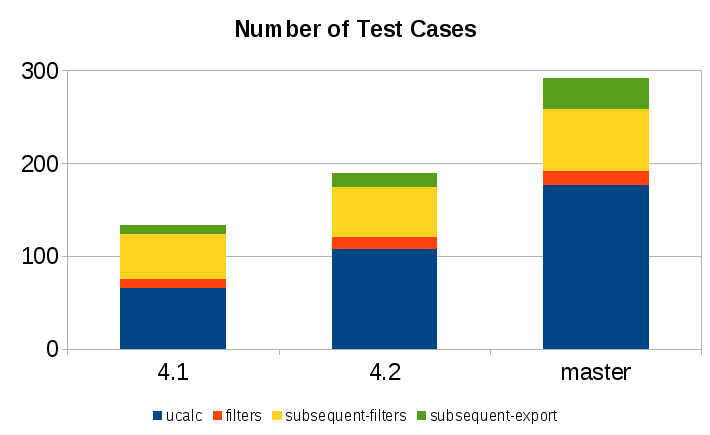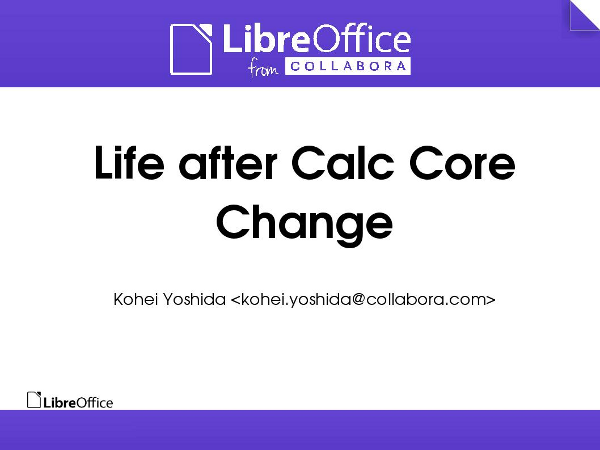So, it was a real pleasure to be a part of the very first LibreOffice conference held in Paris, France. Some of the faces and names were familiar from the old OOo conferences, but the atmosphere of the conference was very different from the OOo ones in the past. I have been to the 2007 Barcelona conference and the 2009 Orvieto one, and I have to say, while there were some rough-edges, this is by-far my favorite OOo/LibO conference to date.
The only regret I have is that, because I had another international trip (to South Korea) only a week prior to the conference, I felt pretty much exhausted most of the time I was there. But I think I managed to chat with most of the people I needed to chat with during this once-a-year event. I intentionally tried not to hack too much during this conference, mainly because of my travel fatigue, but also because I felt it was more important to see people and talk to them to have a good feel for each other. Working from home, I sometimes miss the human interaction that people who work in the office probably take for granted, so this conference was a perfect place to fulfill that need, to make me feel human again. ;-) (Actually I tried to code a bit during the conference, but apparently my brain wasn’t cooperating at all I decided it probably wasn’t a good idea).
Anyway, it was good to see and chat with Markus Mohrhard (moggi), a very active Calc hacker who’s been instrumental in Calc’s filter test development in recent days. We discussed on various topics on Calc development since we work together in that code.
Also, Laurent Godard, whom I’ve known many years from the OOo days, but never met face-to-face.
And Valek Filippov, who happens to be in the same timezone as I. There aren’t many of us left in this LibreOffice circle, unfortunately. I tried to persuade him into this wonderful world of hacking, but so far he’s successfully fended off my attack.
It was also nice to chat with Michael Meeks at length, to clarify the new Calc cell storage structure that he and I discussed previously. Now the concept is very much clear, waiting to be coded.
Of course, many other countless hackers I’ve had beer with during the conference week, it was a real pleasure.
Now, I got some homework to do based on my interaction with various people during the conference. I will list them up item by item to use as a reminder.
- Two Calc bugs from Valek. Both are related to this 1C program that pretty much everyone in Russia uses. I’ve already added them to my 3.5 TODO list, so it’s just a matter of finding time to tackle them unless something tricky comes out.
- Some documentation on how to use the ixion library. Since there were some interests on using ixion to support formula calculations in other applications, I should probably start working on producing documentation on ixion, both on how to build it, and how to use it. I should also create a package for it while I’m at it.
- Support for temporary cell buffer in the orcus library, to allow converting cell values before passing them to the client code. In some cases we can’t simply push the cell value as-is but convert it first before passing it to the client code. Typical examples are double quotes as a literal quote in CSV, as well as encoded characters (e.g. &) in XML/HTML. This will unfortunately cost us a bit for the allocation of the buffer and copying of the char array, but fortunately we don’t need to do this for all cells.
- And lots and lots more.
All in all, I was glad to be a part of this successful conference. The atmosphere was very much all inclusive and personal, exactly how an open source conference should be.


